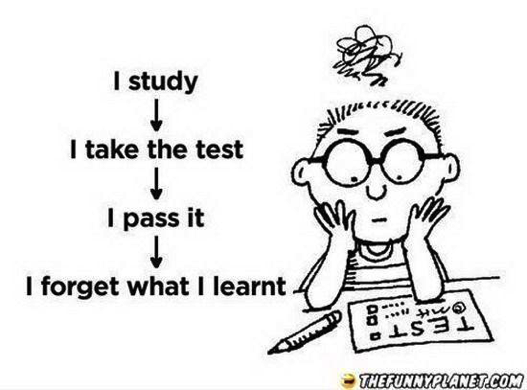“I don’t have enough time to study!” This is a common complaint. With outside commitments, including school activities, students who come home after a long day just want to “chill” and relax a bit. But they can’t because school grades are way too important. So their noses immediately hit the books and they work into the late evening hours.
Parents are distraught because their hard-working students are burning the midnight oil to exhaustion. They’re happy about their stellar grades, but parents worry about what looms ahead in college life. They are fully aware that the work gets harder and more abundant.
Why Does it Take Me So Long to Study?
The problem is how you study— the method. Most students do not know how to effectively study.
A typical 11th grader’s study system may have worked in the past, but to her detriment, it takes longer to learn for the test, especially when taking AP classes. And she may be too afraid to change methods because her grades are strong.
Flashcards are “Trash Cards”

Since our brains work linearly, we need to understand that flashcards are not only time consuming, but a waste. Students fear that if they don’t randomly arrange information for studying, they won’t be prepared for the test. In fact, this is a misconception. Linear learning is the most efficient and most powerful way to learn.
Think about the last time that you remembered something for a test. While taking the test, do you see the needed information in your imagination on some page? Maybe the left-hand page? Or, before one piece of information on your notes and after another? Your brain works like this to remember. Brains find organized patterns for learning. A special note-taking system helps students learn as they read. Learners who use this linear approach don’t have to study—they only review.
https://medium.com/@kriteeshparashar/rote-learning-is-not-bad-overdose-is-5c5156f1ea2c
The Answer: 4 Tips for Learning More and Studying Less
Although some students have their own learning and studying systems, they need to be open-minded to explore new ones.
1. Develop Strong Reading Comprehension
The most important foundation for easy review before testing is having strong reading comprehension. This will provide conceptual understanding for not only the main idea, but the student will know the details as well.
2. Work the Information into Working Memory
Next comes working the information into the working memory, or long-term memory bank. This involves translating reading and classroom materials into a specialized template (part of the RTS Success® program) that is used for pretesting. This powerful system converts information for long-term retention.
3. Organize Information into One Document
Many students study from multiple documents. This is not efficient. Again, this information isn’t organized linearly, and the brain strives to maintain organization. Having one document that supplies all information is the only way to assure a strong foundation of knowledge in an expedient manner.
4. Consolidate Information for Concepts
Hard-working students study notes by reading them—over and over and over. Some were taught other note-taking methods to test themselves. But they find themselves having to cheat and look for the answers.
RTS Success® Note-taking is an all-in-one system to consolidate information. This fully prepares students for testing. But the first step is always understanding everything that you read for conceptual knowledge.
Once students have a efficient learning system, studying is easy and fun! Powerful learners use minimal effort to get that top score.
For more information, please contact Cindy@RTSsuccess.com

